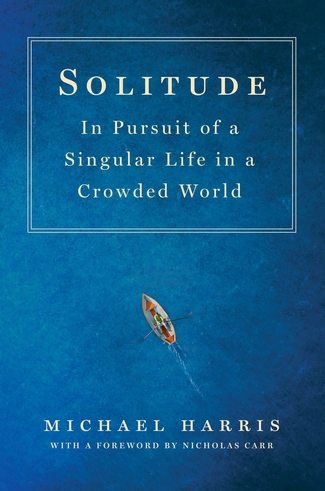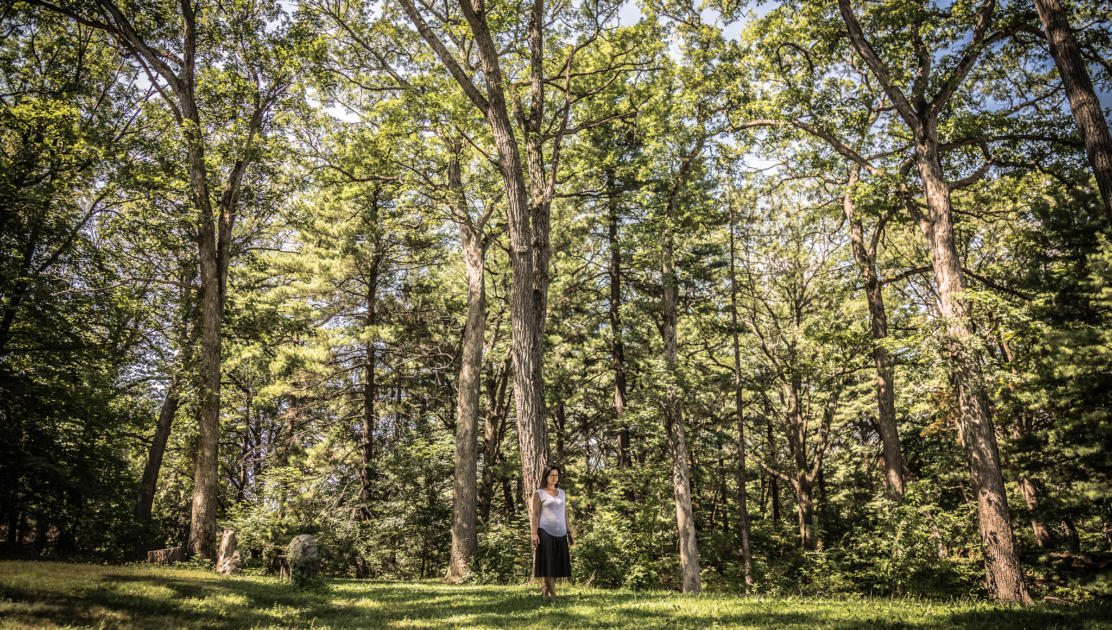Preserving Solitude
An Interview with Michael Harris
By Sam MoweIn his new book, Solitude: A Singular Life in a Crowded World, journalist Michael Harris argues that solitude has become a limited resource as a result of our constant connection to others through our devices and social media platforms. As a consequence, we miss out on the three elements that make up a rich interior life: fresh ideas, self-knowledge, and, paradoxically, bonding with others.
The Garrison Institute spoke with Harris recently about the benefits of designing healthy media diets, the difference between loneliness and solitude, and strategies for preserving our alone time.
You write that “many of us are desperately in need of isolation.” Why?
Our lives are saturated by connectivity—both the in-person sort and the digital sort. Yet, it’s only in solitude that we develop rich interior lives. I think we’ve reached a point where there’s so much social junk food—and so much toxic connectivity—that we need to talk about designing healthy media diets. These diets might include, say, portion control, disconnection, and solitude.
What’s the difference between loneliness and solitude?
Loneliness is a nervous and negative experience of time alone whereas solitude is a productive and contented experience of time alone.
 In what ways has technology—which makes it easier to connect with people—increased our sense of loneliness?
In what ways has technology—which makes it easier to connect with people—increased our sense of loneliness?
The history of technology is a history of connectivity. Marshal McLuhan’s concept of a global village springs directly from his realization that technology was constructing a planet-sized nervous system. And we encourage these technological ties in a pretty unthinking way because the human brain is hard-wired to adore social connection in the same way that it’s hard-wired to adore sugar and fat. And, just as fast food hijacked the desire for sugar and fat, leaving us physically obese, our iPhones have hijacked our desire to be connected to the pack, to the clan, leaving us socially obese.
Meanwhile, we often fail to develop that rich interior life that allows one to happily and endure the occasional bout of alone-time. The result is panicky loneliness when we, inevitably, fail to maintain the social high that our devices promise.
Why do some people thrive when alone and other people suffer?
Why do some people play the piano better than others? Why can some people run greater distances? I think the ability to spend time alone in a meaningful way is just as much a learned skill as playing a musical instrument or excelling at a sport. It’s something we practice. It isn’t something that comes easily and its benefits are less quantifiable than the glittering hearts and retweets we get when we connect on our phones.
What’s the relationship between solitude and creativity?
Basically, the idea is that you can’t have an exciting new idea while sitting at a conference table. Artists, and all creative people, do need to learn from other people but, at the end of the day, they must walk off and, to borrow Ezra Pound’s phrase, “make it new.” Kafka, for example, insisted that one could never be alone enough when one writes. He once told his fiancé, “Even night is not night enough.”
How can solitude lead to self-knowledge?
I think this goes to the idea of seeking approval online. We shape our thoughts, our words, when we’re hunting for retweets and likes. Knowing what you like, independent from some crowd-sourced, algorithmic approval system, is crucial to developing that rich interior life. Naturally, we’re never entirely removed from social pressures. But it’s a question of degrees. We have to ask ourselves where the bias of our thinking lies.
How does spending time alone lead to increased closeness with others?
I think we can argue that general solitude does preclude some kinds of connection. Think of the emotional bonds we form while we’re alone and reading a wonderful novel. We are, at once, experiencing solitude and profound intimacy. Proust called reading, “that fruitful miracle of a communication in the midst of solitude.” And then we get other “fruitful miracles” when we’re, say, walking in the woods and thinking about a long-lost love, or when we sit alone at a café in Paris and write a postcard to our parents.
What strategies do you suggest that people use to protect and maintain their experiences of solitude?
In the same way that vegetarians now insist on the food diet they have devised for themselves, I think we all need to begin insisting on healthy media diets. Once we realize that solitude isn’t a luxury good but something essential to human experience, it becomes easier to make room for it in our daily lives. On a more practical note: don’t bring the phone into the bedroom! If you’re using your phone as an alarm, that’s no excuse. Buy a $20 radio clock. Most people who try it tell me that’s the simplest and most profound life hack they’ve discovered in years.
Sam Mowe is the editor of Lineages, a publication of the Garrison Institute.
